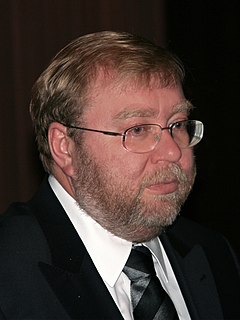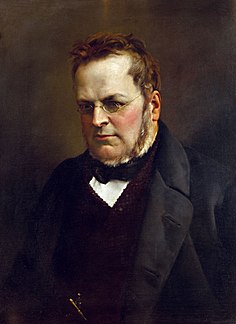
Alexandros Koumoundouros was a Greek politician. Born in Kampos, on the Messenian side of the Mani Peninsula, he was the son of Spyridon-Galanis Koumoundouros, the bey of the area during the last period of the administration of the region by the Ottoman Empire.
The Unity for Human Rights Party is a social-liberal political party in Albania supporting the Greek minority. Founded in 1992, it represents Albania's minorities and is mainly related to the Greek minority, and is the political continuation of Omonoia. It works with Omonoia, MEGA and other Greek parties in Albania at national elections, under a Greek bloc. The party is currently led by Vangjel Dule, who held the party's only seat in Parliament until 2017.

Parliamentary elections were held in Estonia alongside presidential elections on 20 September 1992, the first after regaining independence from the Soviet Union. Following the elections, the five-party Fatherland Bloc led by Mart Laar formed a government together with national-conservative Estonian National Independence Party and centrist Moderates alliance. Voter turnout only 68%.

Parliamentary elections were held in Greece on 1 November 1920. They were possibly the most crucial elections in the modern history of Greece, influencing not only the few years afterwards, including the country's defeat by Kemal Atatürk's reformed Turkish army in 1922, but setting the stage for Greece's political landscape for most of the rest of the 20th century. It had been nearly five years since the last election, a period during which all democratic procedures were suspended due to the National Schism, when Prime Minister Eleftherios Venizelos announced that the elections would take place on 25 October. However, after the unexpected death of King Alexander, who had assumed the throne after the exile of his father, King Constantine I, the elections were postponed until 1 November.

Omonoia is a Greek social, political and cultural organization in Albania that promotes minority rights for the Greek minority in the south of the country.
General elections were held in Bosnia and Herzegovina on 18 November 1990, with a second round of voting in the House of Peoples elections on 2 December. These were the final general elections to be held in Bosnia and Herzegovina while it was still a constituent republic of the Socialist Federal Republic of Yugoslavia.

Parliamentary elections were held in Cyprus in 1960. The House of Representatives was elected on 31 July 1960, whilst the Communal Chambers were elected on 7 August. In the House of Representatives 35 seats were elected by Greek Cypriots and 15 by Turkish Cypriots. The result was a victory for the Patriotic Front, which won 30 of the 50 seats. In the Communal Chambers, the Patriotic Front won 20 of the 26 seats in the Greek Chamber, whilst the Cyprus Turkish National Union won all seats in the Turkish Chamber.
Parliamentary elections were held in Greece between June and August 1844. Supporters of Andreas Metaxas emerged as the largest block in Parliament. However, Ioannis Kolettis became Prime Minister on 18 August.

Parliamentary elections were held in Greece on 4 January 1887. Supporters of Charilaos Trikoupis emerged as the largest bloc in Parliament, with 90 of the 150 seats. Following the election Trikoupis remained Prime Minister, having assumed office on 21 May 1886.

Parliamentary elections were held in Greece on 3 May 1892. Supporters of Charilaos Trikoupis emerged as the largest bloc in Parliament, with 160 of the 207 seats. Trikoupis became Prime Minister for the sixth time on 22 June.

Parliamentary elections were held in Greece on 7 February 1899. Although Charilaos Trikoupis died in 1896, his supporters emerged as the largest bloc in Parliament, with 110 of the 235 seats, Georgios Theotokis, his successor as a leader of the New Party became Prime Minister after the election.

General elections were held in Italy on 27 January 1861, with a second round on 3 February. The newly elected Parliament first convened in Turin on 4 March 1861, where, thirteen days later, it declared the unification of the country as the Kingdom of Italy.

General elections were held in Italy on 29 October 1882, with a second round of voting on 5 November. The "ministerial" left-wing bloc emerged as the largest in Parliament, winning 289 of the 508 seats.

General elections were held in Italy on 23 May 1886, with a second round of voting on 30 May. The "ministerial" left-wing bloc emerged as the largest in Parliament, winning 292 of the 508 seats. As in 1882, the election was held using small multi-member constituencies with between two and five seats.

General elections were held in Liechtenstein on 11 March 1918, with a second round on 18 March. They were the first elections held in the country contested by political parties, as the Christian-Social People's Party and Progressive Citizens' Party had been founded that year. The Progressive Citizens' Party emerged as the largest in the Landtag, winning seven of the 12 elected seats.
Five referendums were held in Switzerland during 1922. The first three were held on 11 June on the process of obtaining Swiss citizenship, on expelling foreigners and on the eligibility of federal officials to stand in National Council elections. All three were rejected. The fourth was held on 24 September on an amendment of the criminal law regarding constitutional and domestic security, and was also rejected. The fifth was held on 3 December on introducing a one-off property tax, and was rejected by a wide margin.
The National Democratic Party, later renamed National Radical Party, was a political party in Greece in the 1920s led by Georgios Kondylis.
The Progressive Party was a political party in Greece in the 1920s and 1930s led by Georgios Kafantaris.















